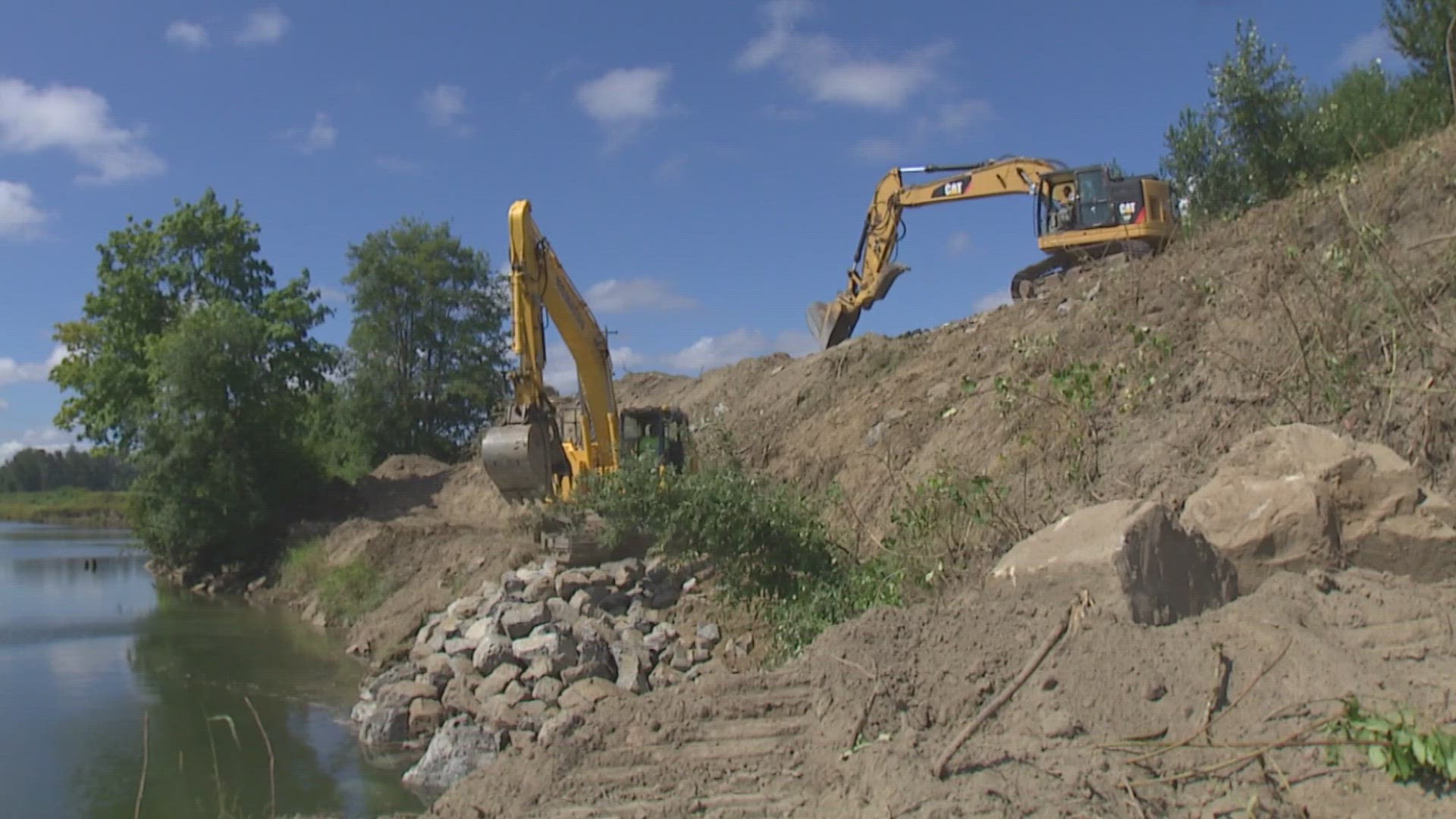SNOHOMISH COUNTY, Wash. — Nine levee rehabilitation projects are planned in Snohomish, Whatcom, Skagit and King Counties during the summer of 2023, in hopes of completion before the fall flood season. A number of flooding events damaged levees, and the U.S. Army Corps of Engineers aims to restore them to pre-flood levels of protection.
Work kicked off with reinforcement and strengthening on the Pilchuck Levee, protecting properties worth around $25 million and restoring the structure to its pre-flood level of protection, according to the U.S. Army Corps of Engineers. USACE is paying for 80%, and the other 20% is covered by the French Slough Flood Control District.
Along with protecting property and people, habitat restoration and environmental protection were priorities for USACE. Wherever possible, work was done after juvenile salmon had left the river and before adults returned to spawn. Downriver, they will soon plant more native species, and they've already incorporated habitat features into the levee.
"We've also replaced on the levee's face some of the trees and shrubs that had to be removed in order to do the construction, so we've put that back on the levee to give that wood back to the river and those will become habitat features for fish within the river," Levee Rehabilitation Program Manager Janet Curran said.
A nearby project on the Marshland Levee near the Snohomish River, financed 80% by USACE and 20% by the Marshland Flood Control District, is also underway.
"These projects are so important because as you know living in the Pacific Northwest, we have some wild rivers," USACE Chief of Emergency Management Crystle Walker said. "And when we get those big flood events in the fall, in the spring, these levees provide flood risk reduction to communities in the surrounding area to keep the water in the channel where we want it to be."
Walker recommends people living near levees learn a little about who owns their levee, what it does and how to get involved in flood protection, along with preparing for the threats of floods proactively. Walker and Curran say while there is still an inherent risk of flooding in some areas and each levee provides a different relative degree of protection, they still offer a great chance of reducing impact.
USACE worked with local flood districts, governmental and environmental agencies, tribes and other partners on the projects.
"We're able to pull in mitigation measures and really work with our stakeholders to come together with a consensus for what is the best project realization for everybody involved," Walker said.

